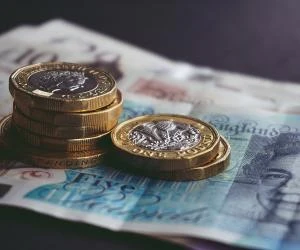GambleAware defends role as key RG funding body

GambleAware’s board of trustees has responded to recent calls for changes to the funding of gambling research, education and treatment (RET) after questions were raised over the independence of its approach.
This comes after the House of Lords Gambling Select Committee urged it to correct an “anomalous” system of funding that blocked charities from raising money from other sources.
That same week a letter published by a number of high profile academics in the British Medical Journal (BMJ) criticised a perceived lack of independence in RET funding. The academics argued that a statutory levy should be imposed, and administered by UK Research and Innovation and the National Institute for Health Research.
Responding to the Lords’ committee, GambleAware chief executive Marc Etches pointed out that treatment providers it commissions are entirely free to raise funds for whatever purpose they deem appropriate.
“This is borne out by their accounts, which show various sources of funding other than GambleAware,” he said.
“However, trustees do make a stipulation against duplicate funding, ie treatment providers should not seek to get paid twice over for the same activity,” he added. “Trustees seek this assurance so that the charity’s resources are being used for their intended purpose, which is a matter of best practice.”
Etches noted that the report appeared to be concerned that funding processes currently “prevents new activities from being funded at all by ensuring that in practice no additional funds can be raised”.
This, he said, was not the case, explaining that GambleAware “welcomes all worthwhile new activities, whether funded by itself or by a third party”.
“Moreover, in the interests of building a system that is accessible to all those who need help, we encourage innovation and promote collaboration and co-ordination between organisations and between activities.”
Responding to the BMJ letter, Kate Lampard and Professor Siân Griffiths, chair and deputy chair of GambleAware’s board of trustees respectively, addressed claims that the industry was able to regulate the availability and distribution of funds to address gambling harm.
“GambleAware has a proud record as an independent charity commissioning prevention and treatment services in England, Scotland and Wales underpinned by research and evaluation,” they wrote.
“Guided by an independent expert Board of trustees, the majority of whom work in the health sector, we have established a range of governance processes and procedures that ensures the industry has no influence over our commissioning decisions.”
They explained that GambleAware had long been advocating for gambling to be acknowledged as a public health issue must be treated holistically. They also highlighted its support for the Lords committee’s recommendation that the National Health Service and other statutory health bodies should work in partnership with charities to provide treatment, allocate resources and refer patients.
“Only then will appropriate referral routes and care pathways be in place to ensure those individuals in need of support, including treatment, can receive the right intervention at the right time,” they said.
While the letter criticised the seemly random nature of current industry funding, with reference to the £100m pledge by Betting and Gaming Council members to treat gambling harms, GambleAware looked to highlight the good this money could do.
“[The] recent £100m pledge from gambling operators will help us maintain this work in prevention and treatment to keep people safe from gambling harms,” Lampard and Griffiths added. “We will continue to make sure funding is allocated efficiently and independently, as would be expected of other health and social care commissioning and grant-making bodies.”
Earlier today GambleAware announced a new awareness raising drive to higlight key symptoms of problem gambling among men aged 25 to 54 years old. This looks to build on its Bet Regret campaign, and make more people aware of treatment resources such as the National Gambling Treatment Service and National Gambling Helpline.
